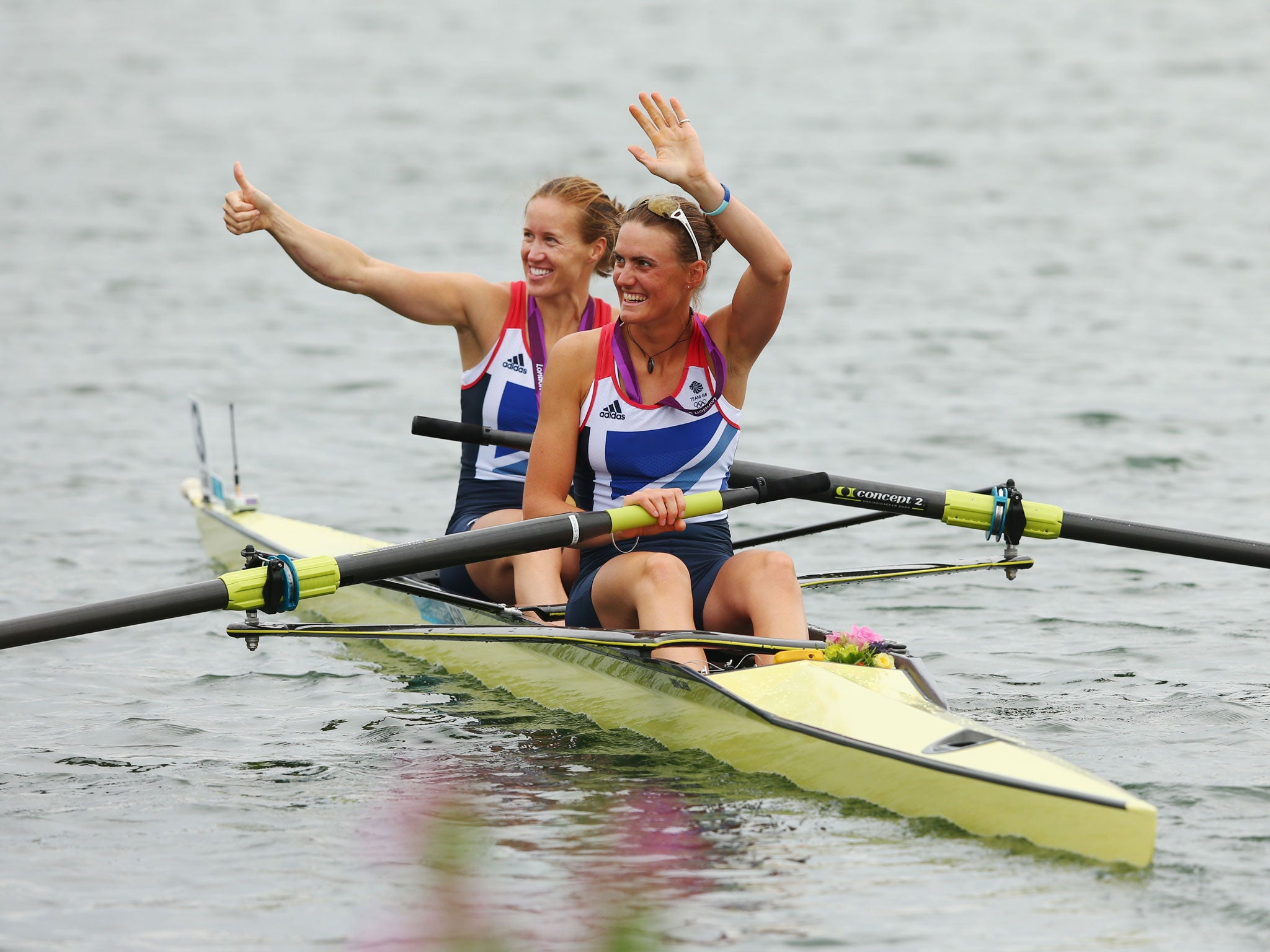Ashling O'Connor: Sport scholarship scheme must not be allowed to perish in tangle of red tape
Tass cheme helped deliver 78 Olympic medals in 10 years

Your support helps us to tell the story
From reproductive rights to climate change to Big Tech, The Independent is on the ground when the story is developing. Whether it's investigating the financials of Elon Musk's pro-Trump PAC or producing our latest documentary, 'The A Word', which shines a light on the American women fighting for reproductive rights, we know how important it is to parse out the facts from the messaging.
At such a critical moment in US history, we need reporters on the ground. Your donation allows us to keep sending journalists to speak to both sides of the story.
The Independent is trusted by Americans across the entire political spectrum. And unlike many other quality news outlets, we choose not to lock Americans out of our reporting and analysis with paywalls. We believe quality journalism should be available to everyone, paid for by those who can afford it.
Your support makes all the difference.What do Amy Williams, Tom Daley, Rebecca Adlington, Shelley Rudman and Helen Glover have in common? Besides an Olympic medal (or in Adlington’s case four), they are all alumni of the Talented Athlete Scholarship Scheme (Tass).
It is remarkable then that the future of this scheme, which has played a part in delivering 78 Olympic medals for Britain during its 10-year existence and about which is it hard to find a bad word said, is under threat.
UK Sport, the funding agency for elite sport, has concluded it can no longer support it beyond September next year; it has been gradually reducing its funding from about £3m a year to £1m.
The decision is rooted in the “no compromise” principle that underpins its mission to maximise the number of Olympic and Paralympic medals for Britain. As Tass is a development scheme for athletes below the rung of would-be medal winners (“podium potential”), it does not fit their funding criteria.
So Tass has been shunted over to Sport England, the grassroots funding agency that distributes money to the national governing bodies to boost participation. It will decide in the new year whether it can keep it alive but the trouble is that the scheme does not exactly fall into its community brief either. Tass is about supporting people who may eventually represent Great Britain, not those who just want to play Sunday league.
So it falls between two stools. This widely acclaimed programme, established by former Olympics minister Tessa Jowell 10 years ago, could be scrapped because it does not quite fit in the right bureaucratic pigeonhole. I despair sometimes, I really do.
I know times are tough in the public sector and difficult decisions have to be made but we are not talking huge sums of money here. The 500 to 600 Tass athletes funded each year receive about £3,500 each, which ultimately is the difference between them having to choose between their education and their sport and being able to continue both.
Most 16 to 18-year-olds with a sporting talent do not have the luxury of pursuing it at the expense of all else. Most parents, given the longer-term considerations, would steer their children towards putting their education first. I know I would.
Tass allows athletes – especially those whose elite potential takes longer to emerge, as is often the case in sports such as rowing – to continue higher education.
Without it, would Glover (with her rowing partner Heather Stanning) have kick-started a flurry of glorious golden moments at the London Olympics? Maybe not. Her grant ensured she could put petrol in her car and get to training.
Without it, Adlington, below the funding radar after glandular fever and without a single sponsor when she won her first gold in Beijing, might not be Britain’s most successful swimmer. Without it, Daley would have found it harder to win a bronze medal in London and then get straight As in his A-levels. These are sizeable opportunity costs.
Universities have always been a pipeline of talent for Great Britain but Tass is a leveller. It provides a certainty about standards of coaching and financial subsidies such as free accommodation. Wherever in the country athletes study, whatever their wealth, the support is the same under a unique funding model that sees universities match investment from sport.
If it is scrapped, there will still be a way for the dedicated to pursue sport and education simultaneously but it will be less accessible and less equitable. It will depend on the ability to pay for training on top of course fees and living expenses. There are not nearly enough scholarships to go round.
The loss of talent will extend beyond the athletes, too. Universities will think twice about keeping coaching roles open if they have to fund them entirely from their own (largely frozen) budgets.
After an Olympics notable for the diverse backgrounds of the medallists, we should not want a return to the days when those from more privileged backgrounds were most likely to represent Britain.
If we want our top athletes to be articulate and good role models for our children, then they need to be given the tools for an education. We should be encouraging them to continue with their studies so they can contribute to the economy after their often short athletic careers.
It is madness to send out the message that you cannot have both a sporting career and an education after the age of 16.
Tass is certainly worth £2m a year, a rounding error in most government budgets. It must not become a victim of Whitehall box-ticking.
Join our commenting forum
Join thought-provoking conversations, follow other Independent readers and see their replies
Comments